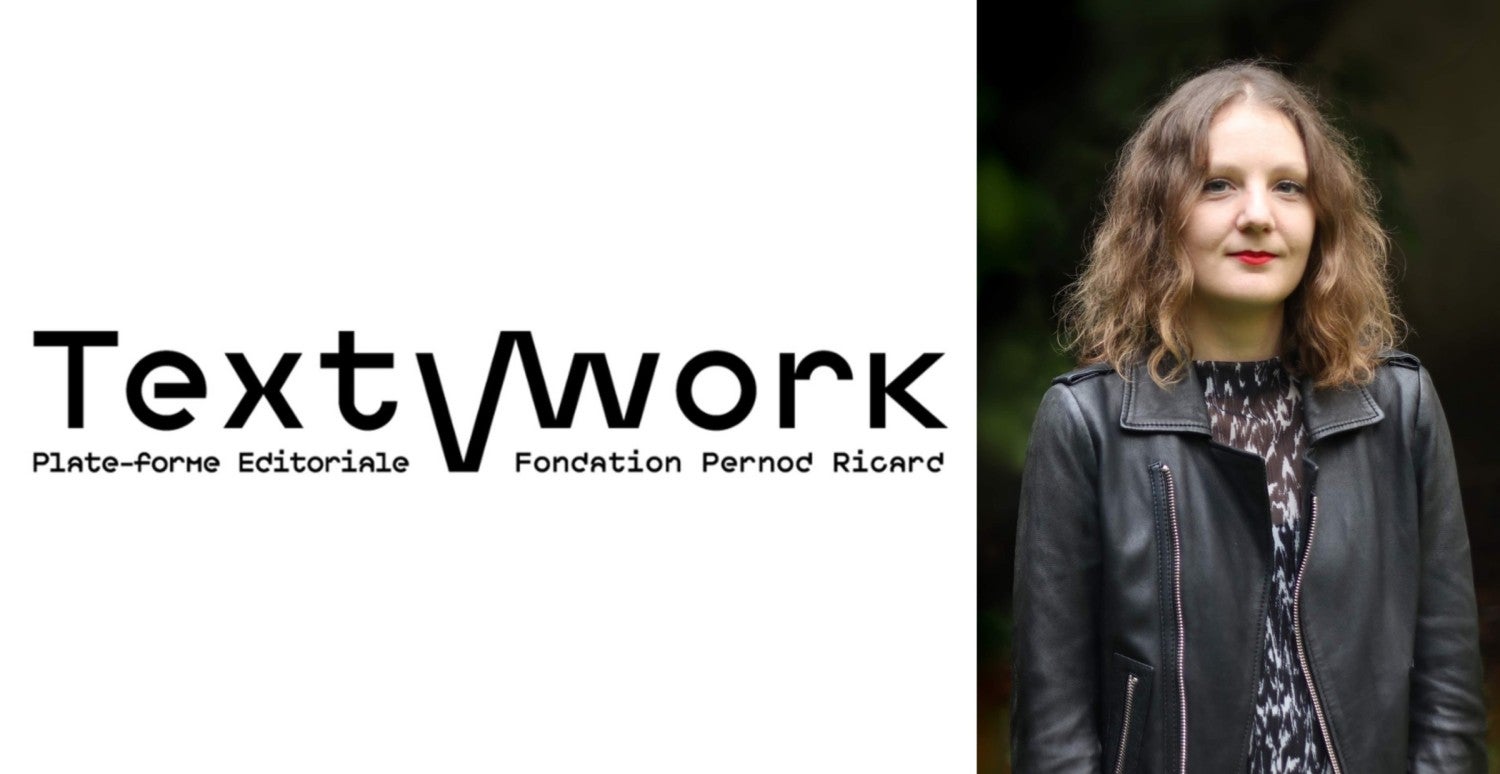Cassandre Langlois is the 2024 laureate of the TextWork Writing Grant

Cassandre Langlois is the laureate of the TextWork Writing Grant in 2024. Extending the programme of the TextWork editorial platform, created by Fondation Pernod Ricard with the support of the French Ministry of Culture, this grant invites young local writers to engage with an artistic scene in France from a set of theoretical and aesthetic references.
TextWork's advisory committee, composed of Virginie Bobin, Alice Dusapin and Elodie Royer chose among numerous applications whose relevance and richness have been unanimously appreciated, Cassandre Langlois' project.
The laureate will receive a grant of 1500 Euros and editorial support to develop her text as well as a short stay at the Archives de la Critique d'Art in Rennes to further her research. Her text will be translated into English and published in both languages in the fall of 2024.
Cassandre Langlois is an independent curator, doctoral researcher in aesthetics and cultural studies and teaches philosophy of art at the Université Paris 1 Panthéon-Sorbonne. The research of her thesis focuses on the intersection between performative arts and curatorial practices, and its potential to form an "other space for art" in a para-institutional approach. As a curator, she develops projects combining performing arts, discursive propositions and critical pedagogies. She currently assists the choreographer Kettly Noël in the context of the Caribbean Dance Platform. Previously, she worked for French art institutions such as the CNAP Centre national des arts plastiques and the Frac Île-de-France.
Her text will focus on practices situated at the intersection of performing arts, discursive propositions, and critical pedagogies. In response to debates and/or crises, these practices involve elements of experimentation, exercise, or repetition. Specifically, the discussion will center around invoking the concept of pre-enactment, which is closely linked to forms of political prefiguration, particularly evident in contemporary activism. This concept is considered as a tool for envisioning desirable futures and as a space for collective resistance.